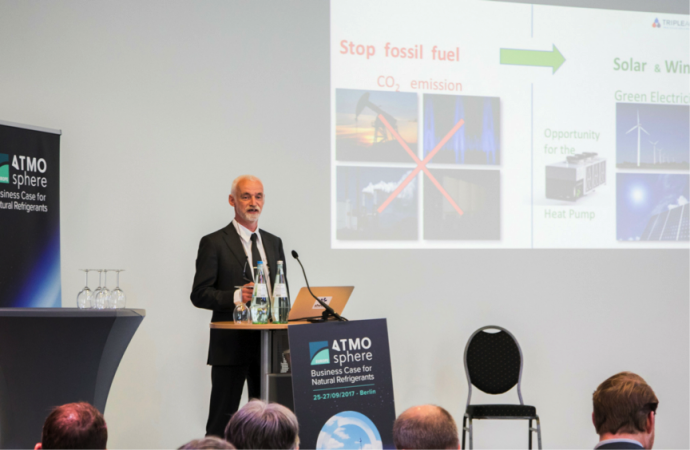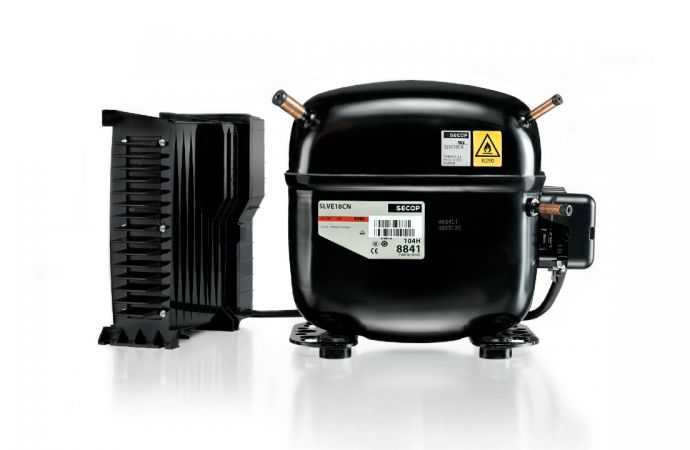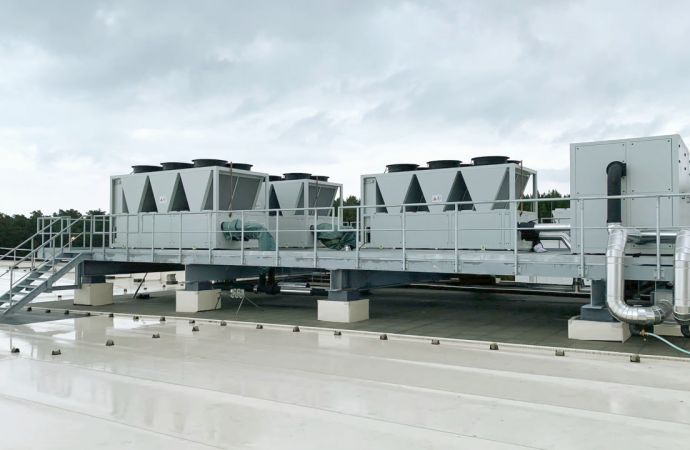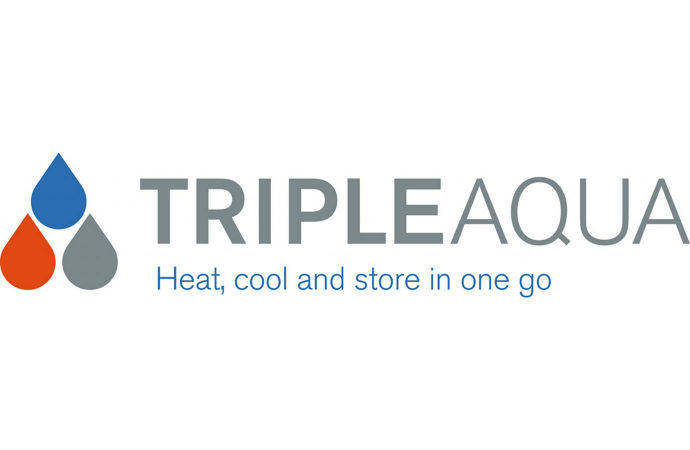Natural refrigerant-based heat pumps can help increase efficiency and reduce CO2 emissions from heating and cooling buildings – one of the biggest causes of global warming, heard ATMOsphere Europe participants.

Menno van Hoff of TripleAqua presenting at ATMOsphere Europe 2017.
Space heating and cooling, and hot water, are estimated to account for roughly half of energy consumption in buildings globally, according to the International Energy Agency (IEA). Thus fossil fuel-free “heat pumps are the low-hanging fruit” in tackling climate change, said Menno van der Hoff, manager of R&D HVAC for Dutch supplier Uniechemie (Union Chemicals) and the winner of Accelerate Europe’s ‘Person of the Year’ award.
According to a poll held at last month’s ATMOsphere Europe conference in Berlin, next to commercial refrigeration, the heat pump sector is expected to see the fastest growth in natural refrigerants adoption in Europe. This makes it all more important to decarbonise heat pumps.
“Reduction of CO2 emissions in the heating sector is essential,” said Thomas Nowak, secretary-general of the European Heat Pump Association (EHPA), calling for more investment in efficiency and technology.
Van der Hoff won the award for his role in developing the Triple Aqua, an energy-efficient heat pump employing propaene (R443A), a mixture of the hydrocarbons propane (R290) and propene (R1270), with a global warming potential (GWP) of three and a charge of less than 11 lbs. (5 kg).
Uniechemie is a division of Swedish HVAC&R distributor Beijer Ref, which is marketing TripleAqua and displayed a unit at its Chillventa booth in October 2016. Beijer Ref’s initial sales focus has been in Europe.
TripleAqua has been installed in Veere in the Netherlands, making it the first zero-carbon town hall in the country.
With natural refrigerant heat pumps, you have a payback time: it’s not an investment, it’s not testing, it’s a reality.”
Menno van der Hoff, TripleAqua by Unichemie
“Heat pumps based on natural refrigerants are the ideal solution for future regulations and market demands,” argued Pieter Boink of SECOP/Nidec. “Market and regulatory requirements are pushing for the use of natural refrigerants. Hydrocarbon technologies bring some challenges but are totally feasible with the right approach,” he said.
Boink shared some numbers from a R290 installation replacing a R134a unit. These included: a reduction in heat-up time from 5-6 hours to 2-3 hours; 15% less energy consumption; and lower noise levels – results from over 20 months of real data.
CO2 refrigerants are also seen as a viable option for residential heat pumps, according to Georges Khoury of SANDEN. Khoury presented positive results from initial installations and field tests of the company’s CO2 heat pump ECONORDIC, a solution for smaller residential applications.
Although panellists saw natural refrigerant heat pumps as an efficient and environmentally friendly solution for cooling and heating buildings, they identified a number of challenges slowing down their wider uptake. A change in entrepreneurial behaviour and innovation to favour natural refrigerant heat pumps as well as more education and training are needed, argued Bert van Dorp of Witteveen & Bos Deventer.
Some of the other solutions presented at the conference included targeting a deadline for the use of natural gas and raising the hydrocarbons charge limit, as well as involving manufacturers more closely in the standards-making process.
There also should be “a bigger focus on Total Cost of Ownership or Life Cycle Costing approach,” said van Dorp.
“Taxes on energy consumption should be higher and tax breaks on energy savings should be increased. With natural refrigerant heat pumps, you have a payback time: it’s not an investment, it’s not testing, it’s a reality,” added van der Hoff.
Related stories






